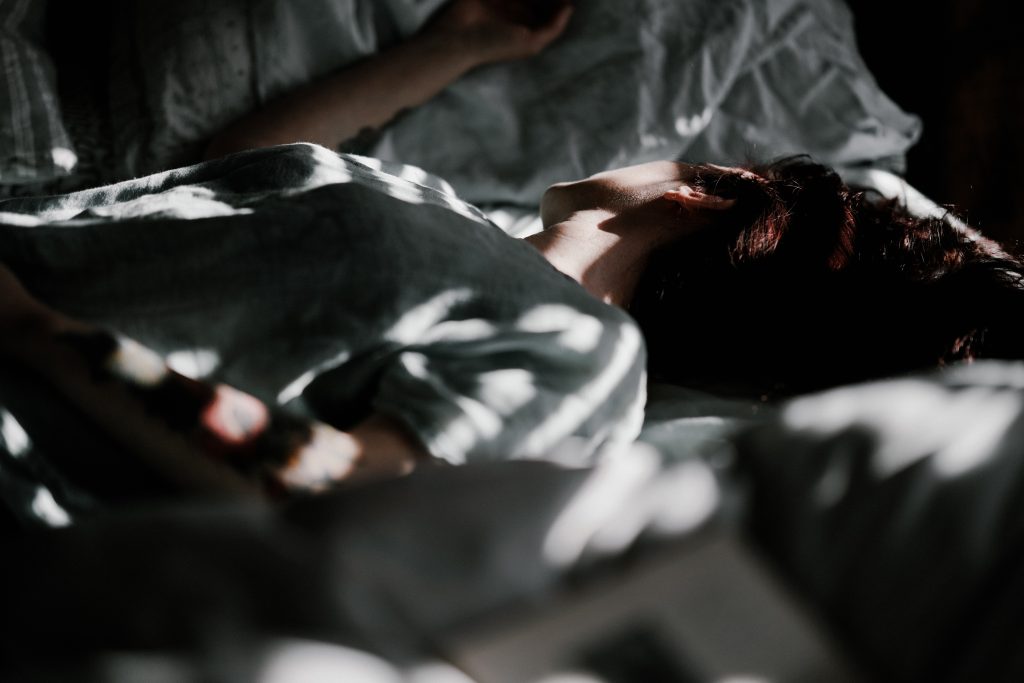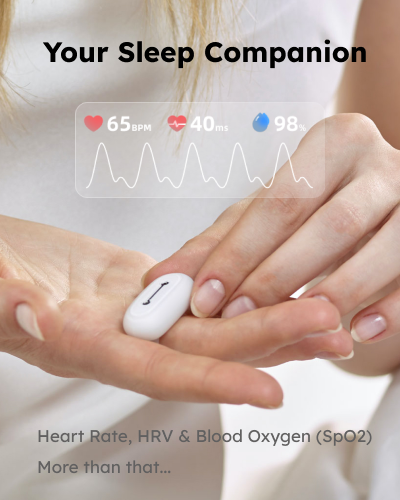- Home
- Blog
- 10 types of sleep disorders
- Night Terrors: Definition, Causes, Symptoms, and Treatment

Night Terrors: Definition, Causes, Symptoms, and Treatment
What do night terrors mean?
Night terrors, also known as sleep terrors, are a type of sleep disorder that primarily affects children, although they can also occur in adults. Night terrors are characterized by sudden and intense episodes of fear, often accompanied by screaming, thrashing, and a sense of extreme panic. Unlike nightmares, which occur during the REM (rapid eye movement) sleep phase and are typically remembered upon waking, night terrors occur during the non-REM sleep stages and are usually not recalled by the individual experiencing them.
What do night terrors do to you?
Night terrors can have a significant impact on both the individuals experiencing them and those around them, especially when it comes to children. Here’s a breakdown of the effects of night terrors:
-
1. Emotional Distress
Individuals who experience night terrors may feel intense fear, panic, and confusion during episodes. Although they might not remember the details upon waking, the emotions felt during the episode can linger, leading to feelings of distress and unease.
-
2. Disruption of Sleep
Night terrors occur during the non-REM sleep stages, particularly during the transition from deep sleep to lighter stages. These episodes can cause abrupt awakenings, disrupting the sleep cycle and leading to sleep fragmentation. As a result, affected individuals may experience sleep deprivation, daytime fatigue, and impaired cognitive function.
-
3. Impact on Quality of Life
For individuals who experience frequent and severe night terrors, the lack of restful sleep can negatively affect their overall quality of life. Daytime sleepiness can lead to difficulties in concentration, memory problems, mood disturbances, and a decreased ability to perform daily tasks effectively.
-
4. Physical Reactions
Night terrors can trigger physical reactions such as increased heart rate, rapid breathing, sweating, and even sleepwalking or sleep talking. These physiological responses can be distressing for both the person experiencing them and anyone witnessing the episode.
-
5. Disturbance to Others
If the individual experiencing night terrors shares a sleeping space with a partner or family members, the loud screams, thrashing, and sudden awakenings can also disturb their sleep. This can lead to sleep disruption for those who share the same environment.
-
6. Anxiety and Fear of Sleep
Frequent night terrors may lead to anxiety about going to bed and falling asleep. The fear of experiencing another episode can create a negative association with sleep and bedtime, further exacerbating sleep difficulties.
-
7. Childhood Impact
Night terrors are more common in children and can be particularly distressing for both the child and their parents. Parents might feel helpless when witnessing their child in a state of intense fear during an episode. Additionally, if night terrors persist, they can impact a child’s overall development, including their behavior, emotional well-being, and school performance.
It’s important to note that not everyone who experiences night terrors will be affected to the same extent. Some individuals may have infrequent episodes that don’t significantly impact their well-being, while others might experience more frequent or severe episodes that warrant medical attention. If night terrors are causing significant distress or affecting daily functioning, it’s advisable to consult a healthcare professional for proper evaluation and guidance on managing the condition.

Is night terrors a mental illness?
Night terrors are not classified as a mental illness. Instead, they are considered a type of sleep disorder. Night terrors fall under the broader category of parasomnias, which are abnormal behaviors or experiences that occur during sleep. Mental illnesses, on the other hand, involve disturbances in mood, thinking, and behavior that can impact a person’s emotional well-being and functioning.
Night terrors are more common in children and tend to decrease as they grow older. They typically occur during the non-REM (rapid eye movement) stages of sleep, particularly during the transition from deep sleep to lighter sleep stages. Unlike nightmares, which are dreams that provoke fear or anxiety and are typically remembered upon waking, night terrors involve sudden awakenings with intense fear and panic. However, individuals who experience night terrors usually have little to no memory of the events after they wake up.
It’s important to differentiate between night terrors and mental illnesses like anxiety disorders or mood disorders. Mental illnesses involve persistent disturbances in thoughts, emotions, and behaviors that can affect a person’s daily life and overall well-being. Night terrors, on the other hand, are more closely related to disruptions in the sleep cycle and are not indicative of underlying mental health conditions.
Should you wake someone during a night terror?
It’s generally not recommended to wake someone during a night terror. Night terrors are characterized by sudden awakenings with intense fear and panic, often accompanied by screaming, thrashing, and other physical manifestations of distress. While it might be instinctive to try to wake the person to comfort them, waking someone during a night terror can actually increase their confusion and disorientation, making the situation more distressing.
Here’s why it’s usually better to avoid waking someone during a night terror:
-
1. Confusion and Disorientation
If you wake someone during a night terror, they might be disoriented and have trouble understanding what’s happening. This confusion can exacerbate their distress and make it more difficult for them to calm down.
-
2. Incomplete Transition
Night terrors occur during the non-REM sleep stages, and waking someone abruptly can disrupt the natural sleep cycle. This might prevent them from completing the transition to a more wakeful state and potentially lead to further sleep disturbances.
-
3. Increased Agitation
Waking someone during a night terror could lead to increased agitation and anxiety. They might not immediately recognize you or their surroundings, and the sudden awakening might amplify their feelings of fear.
-
4. Safety Concerns
People experiencing night terrors might engage in sleepwalking or other potentially dangerous behaviors. Waking them abruptly could increase the risk of accidents or injuries.
Instead of waking the person, it’s generally better to ensure their safety and offer reassurance if possible. You can take the following steps:
-
Stay Calm
If you’re witnessing someone experience a night terror, remain calm. Remember that the episode will likely pass on its own.
-
Ensure Safety
If the person is moving or seems agitated, gently guide them away from any potential hazards or obstacles.
-
Observe from a Distance
If it’s safe to do so, observe the person from a distance to ensure they don’t harm themselves while the episode unfolds.
-
Create a Comforting Environment
After the night terror subsides, you can offer comfort and reassurance if the person is awake or semi-awake. Providing a calming presence and a familiar environment can be helpful.
What vitamin deficiency causes night terrors?

If the person experiences frequent or severe night terrors that significantly disrupt their sleep or daily life, it’s a good idea to consult a healthcare professional. A medical evaluation can help determine if there are any underlying factors contributing to the night terrors and guide appropriate management strategies.
There isn’t a specific vitamin deficiency that has been definitively linked to causing night terrors. Night terrors are more commonly associated with factors such as sleep deprivation, stress, genetics, and certain medical conditions. While vitamins and nutrients play a crucial role in overall health, and deficiencies can impact various aspects of well-being, there is limited evidence to suggest a direct link between a specific vitamin deficiency and night terrors.
That being said, there are some vitamins and minerals that play a role in promoting healthy sleep and managing stress, which are factors that can indirectly influence the occurrence of night terrors:
-
1. Vitamin D
Adequate levels of vitamin D are important for overall health, including sleep regulation. Some studies suggest that low levels of vitamin D might be associated with sleep disturbances, although the exact relationship is not fully understood.
-
2. Vitamin B6
Vitamin B6 is involved in the synthesis of neurotransmitters like serotonin, which can impact mood and sleep. While a deficiency in vitamin B6 can affect sleep quality, it’s not a direct cause of night terrors.
-
3. Magnesium
Magnesium is known for its role in relaxation and sleep regulation. Deficiency in magnesium can potentially lead to sleep disturbances, but again, it’s not a specific cause of night terrors.
-
4. Zinc
Zinc deficiency has been associated with changes in sleep patterns, but more research is needed to establish a direct link to night terrors.
-
5. Iron
Iron deficiency, particularly in children, has been linked to sleep disturbances. However, iron deficiency is not a well-established cause of night terrors.
It’s important to note that vitamin and mineral deficiencies can have a wide range of health implications beyond sleep, and addressing any deficiencies through a balanced diet or supplements, as advised by a healthcare professional, is important for overall well-being. If night terrors are a persistent concern, it’s recommended to consult a medical professional to identify any underlying factors and determine the best course of action.

How do you fix night terrors in adults?
While there is no one-size-fits-all solution for treating night terrors in adults, there are several strategies that can help reduce their frequency and severity. It’s important to remember that night terrors can have various underlying causes, so a combination of approaches might be necessary. If you or someone you know is experiencing frequent and distressing night terrors, consider trying the following strategies:
-
1. Establish a Consistent Sleep Routine
Creating a regular sleep schedule can help regulate your sleep cycles and reduce the likelihood of night terrors. Aim to go to bed and wake up at the same times every day, even on weekends.
-
2. Prioritize Sleep Hygiene
Practice good sleep hygiene by creating a comfortable sleep environment. This includes keeping the bedroom dark, quiet, and at a comfortable temperature, as well as avoiding stimulating activities before bedtime.
-
3. Reduce Stress
Stress and anxiety can contribute to night terrors. Engage in relaxation techniques such as deep breathing, meditation, yoga, or progressive muscle relaxation to manage stress levels.
-
4. Limit Alcohol and Caffeine
Avoid consuming alcohol and caffeine close to bedtime, as they can disrupt sleep and potentially exacerbate night terrors.
-
5. Address Underlying Medical Conditions
Certain medical conditions, such as sleep apnea or restless legs syndrome, can contribute to sleep disturbances. Seek medical evaluation and treatment if an underlying condition is suspected.
-
6. Avoid Overexertion
Physical exhaustion or overexertion can trigger night terrors. Ensure you’re getting adequate rest and avoiding excessive physical activity close to bedtime.
-
7. Medication and Therapy
In some cases, a healthcare professional might recommend medication or therapy to manage night terrors. Cognitive-behavioral therapy (CBT) or counseling can help address any psychological factors that might contribute to sleep disturbances.
-
8. Consult a Sleep Specialist
If night terrors are significantly impacting your quality of life, consider consulting a sleep specialist. They can conduct a thorough evaluation, including a sleep study if necessary, to identify any underlying causes and recommend appropriate treatment.
-
9. Avoid Triggers
If certain factors or experiences seem to trigger night terrors, try to avoid them. This could include avoiding stressful situations, scary movies, or heavy meals before bedtime.
-
10. Maintain a Sleep Diary
Keeping a sleep diary can help you track patterns and identify potential triggers for night terrors. This information can be valuable when discussing your condition with a healthcare professional.
It’s important to be patient, as it may take time to see improvements. If you’re concerned about night terrors, consider discussing your symptoms with a healthcare provider who can provide personalized guidance and recommend the most appropriate strategies for your situation.
Comments (2)
Leave a Reply Cancel reply
ALL ARTICLES
Subscribe Us
403A, Building A2, Zhihui Park, Fuyong Street, Bao'an District, Shenzhen, Guangdong, China
Products
Company
Copyright © SLEEPON. All rights reserved.
SLEEPON keeps both Sleeponhealth and Sleepon.us due to the brand upgrading. We promise to provide the same products and service in both sites.








best allergy over the counter costco canada cold and sinus how long do antihistamines take to work
I have been surfing online more than 3 hours today, yet I never found any interesting article like yours. It is pretty worth enough for me. In my opinion, if all web owners and bloggers made good content as you did, the web will be much more useful than ever before.